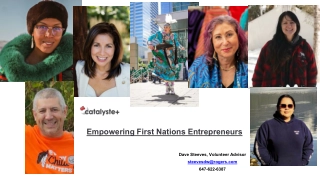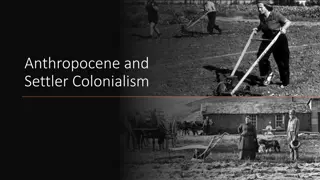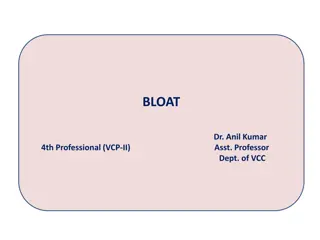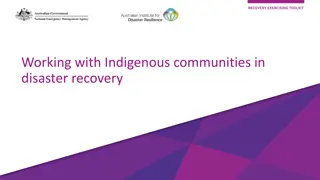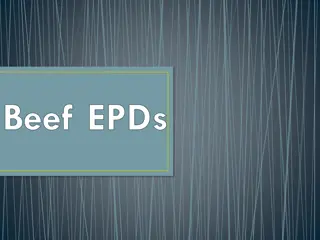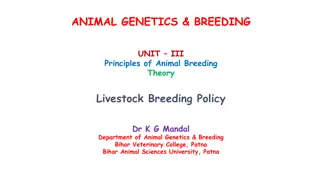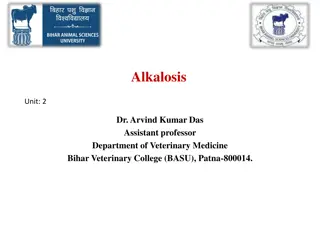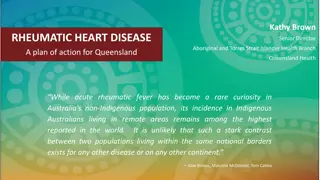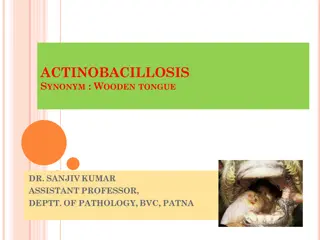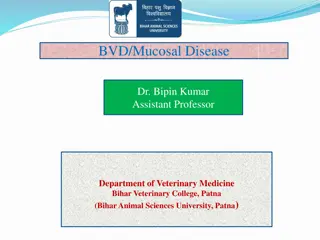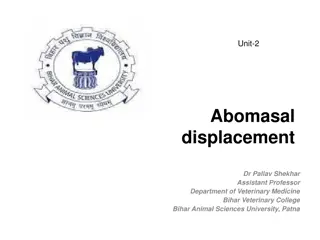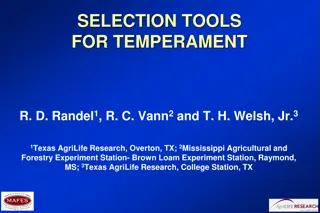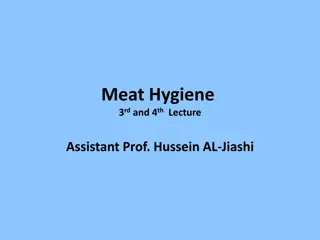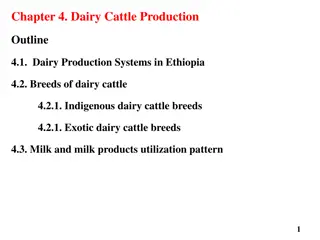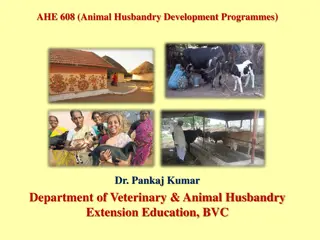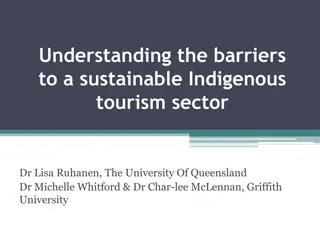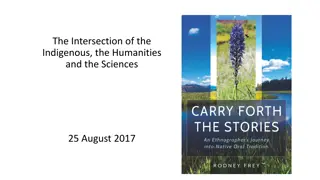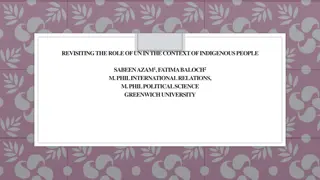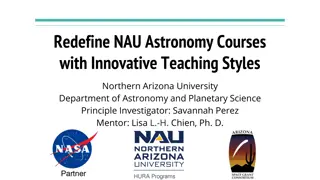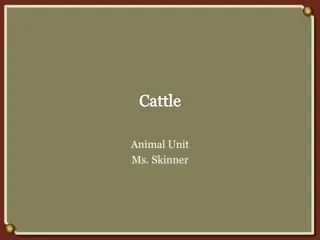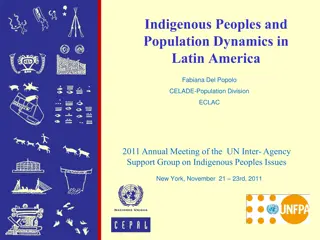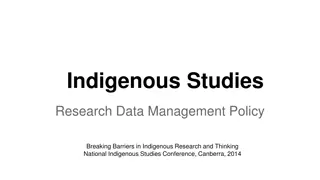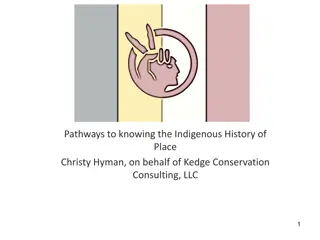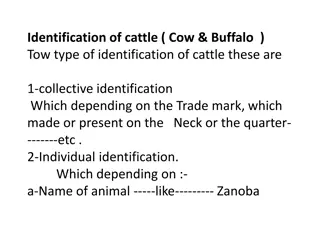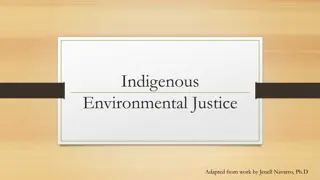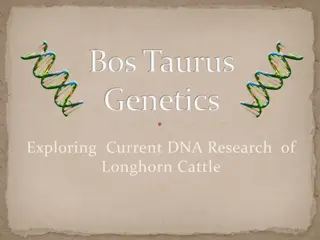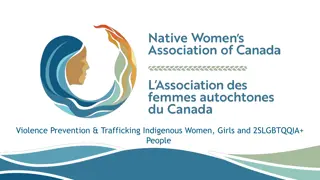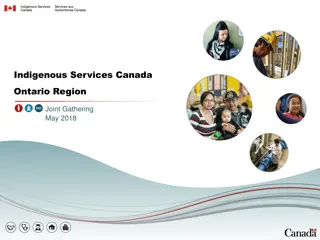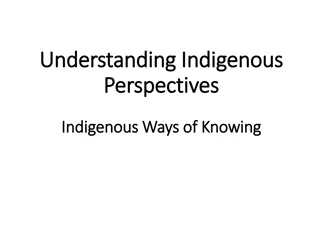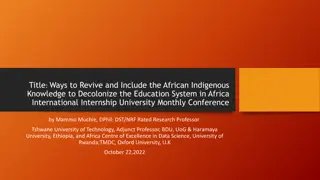Empowering First Nations Entrepreneurs
Empowering First Nations Entrepreneurs is a program by OFNEDA, a Canadian economic development organization, providing guidance and support to Indigenous entrepreneurs. The initiative matches Indigenous partners with experienced volunteer advisors to enhance capacity-building and facilitate communit
0 views • 28 slides
Conventions for Referring to Indigenous Peoples in Canada and the USA
This article outlines guidelines for referring to Indigenous Peoples, emphasizing specificity and respect for preferred names and terms. It discusses the importance of capitalizing terms related to Indigenous Nations and cautions against using terms implying colonial possession. The use of terms lik
1 views • 24 slides
Understanding Settler Colonialism and Its Impact in the Anthropocene
Settler colonialism, a structure of domination, aims to permanently transfer settlers to Indigenous lands, leading to ongoing dispossession and conflict. This form of colonialism disrupts Indigenous nationhoods, political practices, and sovereignties. The dispossession of Indigenous bodies and lands
0 views • 8 slides
Indigenous IT Apprenticeship Program Overview
The Government of Canada's IT Apprenticeship Program for Indigenous Peoples offers a comprehensive 24-month term appointment to develop Indigenous individuals into IT professionals. Supported by the Office of Indigenous Initiatives, the program provides hands-on work experience and online training,
0 views • 6 slides
Understanding Bloat in Cattle: Causes, Symptoms, and Treatment
Bloat in cattle, characterized by overdistension of the rumenoreticulum with gases of fermentation, can be caused by various factors including diet, obstruction, or diseases. Frothy bloat and free gas bloat are common types, each with its own triggers and symptoms. Diagnosis involves a thorough hist
1 views • 8 slides
Understanding Indigenous Communities in Disaster Recovery
Increased understanding of intrinsic strengths and unique impacts of disasters on Indigenous communities, role of Indigenous community-controlled organizations, importance of connection to Country, and need for engagement with Indigenous communities by emergency management agencies. Disasters have u
0 views • 21 slides
Understanding Expected Progeny Differences (EPDs) in Beef Cattle Selection
Expected Progeny Differences (EPDs) in beef cattle breeding predict future offspring performance based on genetic merit. They help compare animals as parents and aid in selecting for traits like birth weight, weaning weight, and yearling weight. Combining EPDs with visual appraisal improves decision
0 views • 15 slides
Livestock Breeding Policy for Genetic Improvement of Cattle and Buffalo in India
India's diverse agro-ecological regions host a wide range of farm animal breeds. The livestock breeding policy aims to enhance the productivity of cattle and buffalo through strategies such as grading up with indigenous superior dairy breeds, crossbreeding with high-yielding exotic breeds, and selec
1 views • 23 slides
Understanding Alkalosis in Cattle: Causes and Pathophysiology
Alkalosis in cattle, particularly ruminal alkalosis, can be caused by issues such as abomasal atony and alkaline indigestion. Excessive intake of protein-rich feed and changes in diet play a significant role. Pathophysiology involves the accumulation of ruminal ammonia, leading to alkaline pH and ru
1 views • 13 slides
Addressing Rheumatic Heart Disease Disparities in Indigenous Australians
Rheumatic heart disease (RHD) continues to disproportionately affect Indigenous Australians, particularly those living in remote areas, with a high incidence compared to the non-Indigenous population. Acute Rheumatic Fever (ARF) is a key precursor to RHD, often linked to social determinants and poor
0 views • 7 slides
Actinobacillosis (Wooden Tongue) in Cattle and Sheep: Overview of the Infectious Disease
Actinobacillosis, also known as Wooden Tongue, is a specific infectious disease affecting cattle and sheep, caused by Actinobacillus lignieresii. It is characterized by fibrosis of the tongue and soft tissues, leading to mobility issues. The disease is primarily transmitted through wounds and abrasi
0 views • 8 slides
Understanding Bovine Virus Diarrhea and Mucosal Disease in Cattle
Bovine Virus Diarrhea (BVD) and Mucosal Disease (MD) are two clinically distinct yet interconnected syndromes in cattle caused by Pestivirus. While originally thought to be separate, they share a common viral etiology. BVD can lead to persistent infections, while MD is sporadic, progressive, and fat
0 views • 14 slides
Relationship Between Health and Deaths in Custody in Australia
In Australia, the relationship between prisoner health and deaths in custody is a critical issue. Indigenous inmates are disproportionately affected, with higher death rates compared to non-Indigenous inmates. Addressing prisoner health may offer a potential solution to reducing custodial deaths. Th
0 views • 32 slides
Understanding Abomasal Displacement in Dairy Cattle: Causes, Symptoms, and Management
Abomasal displacement is a common issue in older lactating dairy cattle, often related to inadequate nutrition and concurrent diseases. This condition involves the displacement of the abomasum from its normal position, causing symptoms like anorexia, ketosis, and dehydration. Learn about the causes,
1 views • 21 slides
Understanding Sand Crack in Cattle Hooves: Causes, Signs, and Treatment
Sand crack, a fissure of the horny wall in cattle hooves, can present transversely or longitudinally. It commonly affects dairy breeds and is predisposed by various factors such as overgrowth of digital horn and chronic laminitis. Diagnosis and treatment differ based on the form of the crack, with s
0 views • 10 slides
Understanding Cattle Temperament: Implications for Producers
Cattle temperament plays a crucial role in the overall well-being of livestock and can impact factors such as stress levels, growth rates, and immune function. This article delves into the importance of evaluating and managing temperament in cattle to mitigate risks of injury, reduce stress-related
2 views • 32 slides
Common Infective Diseases in Cattle and Their Implications
Infective diseases such as blackquarter, brucellosis, and foot and mouth disease pose significant threats to cattle health and food safety. Blackquarter is a fatal disease caused by Clostridium chauvaei, while brucellosis leads to contagious abortion in cattle. Foot and mouth disease is highly conta
0 views • 17 slides
Dairy Cattle Production Systems in Ethiopia: Overview and Practices
Ethiopia has a favorable environment for dairy development with diverse production systems including pastoralism, agro-pastoralism, and mixed farming. The country boasts indigenous and exotic dairy cattle breeds, supporting milk production and utilization. This article outlines the different dairy p
2 views • 38 slides
Animal Husbandry Development Initiatives in India: Gaushalas and Gosadans
Animal Husbandry Development Programmes in India have a rich history dating back thousands of years, with initiatives like Gaushalas and Gosadans playing a significant role in preserving indigenous cattle breeds, promoting milk production, and supporting rural economies. Gaushalas aim to breed and u
0 views • 10 slides
Understanding Barriers to Sustainable Indigenous Tourism Sector
Globally, tourism is seen as an opportunity for Indigenous communities. However, barriers such as economic challenges, declining demand, and competition pose significant obstacles. Research conducted in Australia aims to analyze the gap between supply and demand in Indigenous tourism and explore the
0 views • 15 slides
Exploring the Intersection of Indigenous, Humanities, and Sciences
The narrative delves into the rich tapestry where Indigenous traditions, Humanities, and Sciences meet, highlighting the contrast in approaches like logical reasoning in Sciences, spiritual origins in Indigenous knowledge, and interpretive wisdom in Humanities. It emphasizes the holistic, narrative-
0 views • 9 slides
Settler Colonialism and Carcerality: Disrupting Indigenous Relationships and Territories
This study delves into the impact of settler colonialism on Indigenous peoples, focusing on the immobilization and movement imposed on them through carceral spaces. It explores the intersections of official and unofficial carceral spaces, shedding light on the disrupting effects on Indigenous relati
0 views • 8 slides
The Role of UN in Indigenous Peoples: A Critical Analysis
The research delves into the role of the United Nations in addressing the unique social, cultural, economic, and political qualities of indigenous peoples worldwide. It discusses the importance of recognizing indigenous rights, traditions, and the challenges they face in contemporary societies, emph
0 views • 7 slides
Innovating Astronomy Education at NAU Through Indigenous Perspectives
Explore how Northern Arizona University is reshaping astronomy education using innovative teaching styles with a focus on Indigenous Astronomy. Gain insights into effective teaching methods, the importance of Indigenous Astronomy lab content, teaching approaches, and creating engaging lab materials.
0 views • 7 slides
History and Vocabulary of Cattle Farming
Explore the rich history of cattle farming, from the introduction of longhorn cattle in America by the Spanish to the importation of European dairy cattle to Jamestown Colony. Learn about various terms and concepts associated with cattle, such as castration, heifer, marbling, and more. Delve into th
0 views • 36 slides
Understanding Cattle Management and Classification
Cattle, belonging to the genus Bos, are classified into three types - Bos Taurus, Bos Indicus, and Bos Africans. They are ruminants with fixed hollow horns, udders with four teats, and males have teats on the scrotum. Cattle are utilized for milk production, agriculture, and meat manufacturing. They
0 views • 70 slides
Indigenous Peoples and Population Dynamics in Latin America
Latin America is a region with diverse indigenous groups, facing demands for recognition and rights. The importance of information, especially from censuses, is crucial for developing policies and programs to support indigenous peoples. Various data sources such as censuses, surveys, and registries
0 views • 19 slides
Indigenous Studies Research Data Management Policy: Breaking Barriers in Indigenous Research
Covering cultural rights, Indigenous data custodianship, policy developments, and ATSILIRN protocols, this presentation at the National Indigenous Studies Conference in 2014 highlights key issues and approaches in managing research data in Indigenous studies.
0 views • 61 slides
Understanding the Impacts of Colonialism on Indigenous Communities
The article delves into how East Coast Indigenous communities were profoundly affected during the colonial period and beyond, enduring forced removals, enslavement, attempted genocide, and subjugated statuses. It explores the historical realities that continue to shape the presence and representatio
0 views • 18 slides
Cattle Identification Methods and Characteristics Explained
Explore different methods of identifying cattle including collective and individual methods such as branding, tattooing, and tagging. Learn about cattle species, breeds, colors, and aging factors like dentition and parturition. Discover the main color variations in cattle such as yellow, red, black,
0 views • 36 slides
Indigenous Recruitment Action Plan Overview
CIRNAC Yukon developed an Indigenous Recruitment Action Plan focusing on three themes: Outreach, Renewing the job advertisement, and Mentorship. The plan includes various activities such as attending job fairs, partnering with colleges, and creating employee profiles to attract local Indigenous cand
0 views • 12 slides
Call to Implement Jordan's Principle for Indigenous Children
The Truth and Reconciliation Commission's Call to Action No. 3 emphasizes the need for all levels of government to fully implement Jordan's Principle, which prioritizes the needs and well-being of Indigenous children. Highlighting the story of Jordan River Anderson, the call underscores the importan
0 views • 19 slides
Indigenous Rights Litigation in Canadian Law: A Review of 2020-2022
Strategic considerations in Indigenous rights litigation, social acceptability in decision-making, Indigenous identities, and future expectations were discussed in a review from November 21, 2022. The case of Southwind v. Canada highlighted issues of fiduciary obligations and equitable compensation
0 views • 50 slides
Understanding Indigenous Environmental Justice & Biodiversity Interconnection
Exploring the intricate relationship between Indigenous environmental justice, biodiversity, and cultural diversity as discussed by Jenell Navarro, Ph.D., and Winona LaDuke. The impact of settler colonialism, capitalism, and loss of Indigenous populations on environmental degradation is highlighted.
0 views • 9 slides
Exploring Longhorn Cattle Genetics Through DNA Research
Longhorn cattle genetics are being investigated through DNA research to identify unique traits and differentiate them from other cattle breeds. By analyzing genetic codes with scatter plot graphs, scientists aim to map the genetic makeup of Longhorns accurately. This research helps in understanding
0 views • 9 slides
Understanding Violence Prevention and Trafficking in Indigenous Communities
Explore key terms like assimilation, colonialism, discrimination, grooming, and human trafficking in the context of Indigenous women, girls, and 2SLGBTQQIA+ people. Learn about concepts such as intergenerational trauma, patriarchy, racism, and settler colonialism that impact these communities. Under
0 views • 32 slides
Indigenous Services Canada Achievements and Initiatives Overview
Indigenous Services Canada in Ontario region held a joint gathering in May 2018, leading to the formation of a new department focusing on improving health outcomes for Indigenous communities. The department has made significant strides in enhancing services such as healthy child development, mental
0 views • 25 slides
Exploring Indigenous Knowledge in Education
Delve into Indigenous ways of knowing, understanding, and learning, emphasizing the importance of integrating traditional Indigenous pedagogies in education. Learn about the characteristics, sources, and values of Indigenous knowledge, and explore the intersection of Indigenous knowledge with Wester
0 views • 46 slides
Reviving African Indigenous Knowledge for Decolonizing Education
Mammo Muchie, a distinguished DPhil and research professor, will address the urgent need to revive African Indigenous Knowledge within the education system to decolonize it effectively. The conference will explore the key characteristics of Indigenous Knowledge, highlight the exemplary model of Imho
0 views • 84 slides
Australians Reject Indigenous Advisory Panel: Impact & Challenges
Australians recently voted against establishing an Indigenous advisory panel, highlighting inequities faced by Indigenous Australians. The referendum faced misinformation and lacked clarity on its benefits. The rejection raises questions on addressing Indigenous issues, impacting Australia's global
1 views • 5 slides
